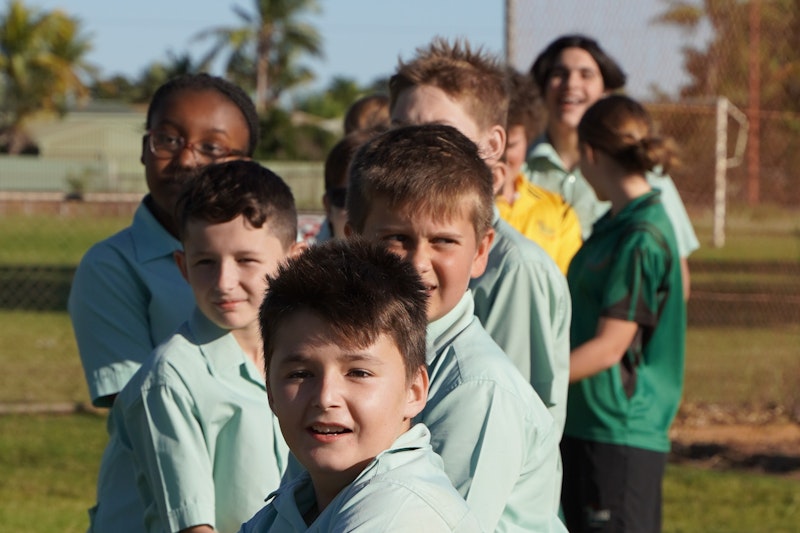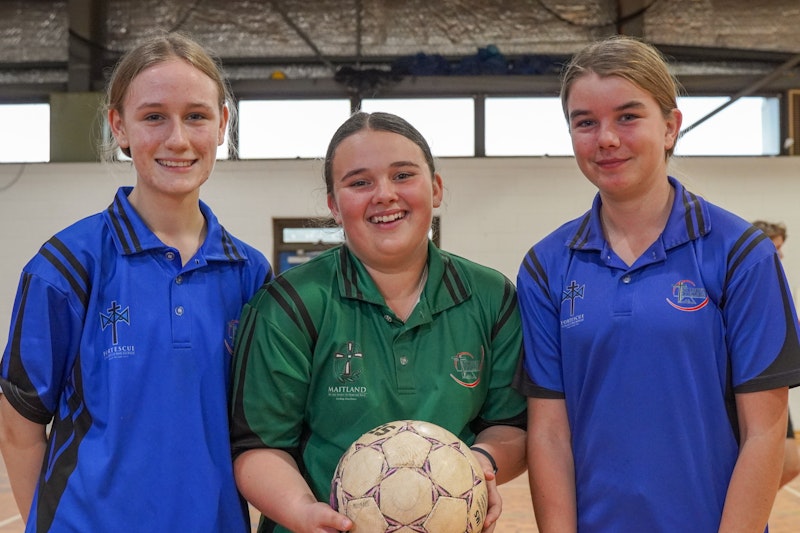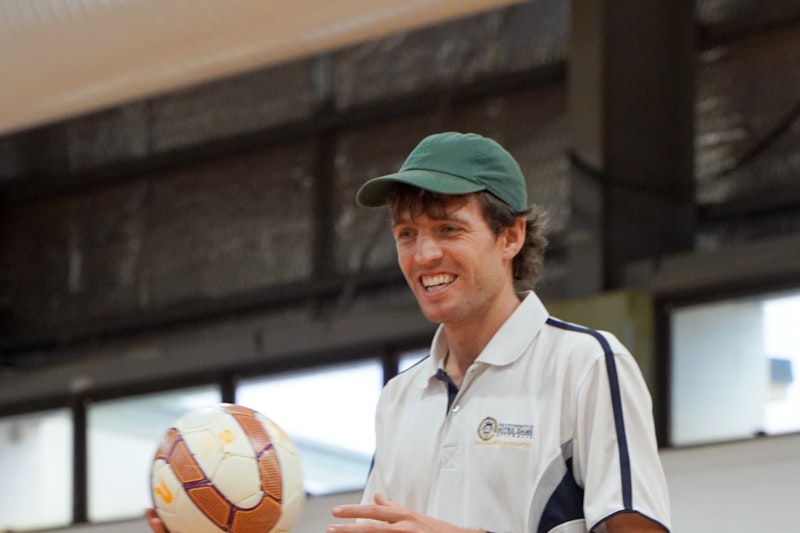Lower School
Throughout their lower-school years' students are assessed on the following outcomes:
- Knowledge and Understanding
- Interpersonal Skills
- Self-Management Skills
- Skills for Physical Activity
Our department strives to expose students to a wide variety of individual and team sports and activities that are suited to our hot climate. Physical Education is compulsory for students from Year 7 – 10, with students able to choose Specialised Physical and Recreational options in Years 8, 9 and 10. Some examples include:
- Athletics
- Cross-country
- Indoor Cricket
- Volleyball
- Dodgeball
- Bronze star/medallion
- Snorkelling
- Mountain biking
- Kayaking
- AFL
- Year 7 and Year 8 Specialised Sport
In this unit students will work collaboratively to explore, examine, experience and understand team sport. Sport Education in Physical Education Program (SEPEP) has developed as a model designed to appeal to all facets of student's abilities and experience relevant to the process of learning, not just the physical.
SEPEP seeks to change the typical pattern of classroom interaction, procedures and principles and to redefine the roles of teachers and students. As the ones who are in the class to learn, students should be asking questions and determining the problems of knowledge that must be solved in order to study a topic in a way that makes sense to them. The aim is to maximise students' opportunities to learn by allowing them to ask questions, to obtain information relevant to these questions and to interpret this information in light of their experiences.
This model of instruction emphasises learner investment in the active search for information about sport (and life) relevant issues such as skills, rules, game strategies and social dynamics by collective action with peers, followed by interpretation of the information in such a way that eventually it can become knowledge for the students. Sports may include – Floorball, Touch rugby, Badminton, Volleyball, Basketball.
Year 9 and Year 10 Sport Recreation and Outdoor Education
The programme is an elective and aims to foster individuals to work confidently in the Skills Active Programme that will help transfer skills from the sports field to the classroom, ensuring good outcomes for Health and wellbeing. The main aim of the programme is to foster education, justice and community education. Fitness testing will be conducted on a regular basis. Students will have the opportunity of attending sports clinic as well as listening to medical professionals regarding sports medicine, good nutrition, injury management, strapping and taping.
Students will be equipped with the necessary sporting skills and knowledge which they will take into the primary schools to coach as well as referee matches. There will be many sporting trips on offer for students taking the course. There are many amazing opportunities for students in this course such as self-management skills, interpersonal skills, and interaction with other schools, teamwork, sportsmanship and fair play. Students in addition gain valuable leadership skills and improve their knowledge of rules and umpiring of Football.
In the Outdoor Education components students are exposed to a variety of bush craft skills, applying the leave no trace policy in the environment and basic survival skills with the use of the compass. Students undertake hiking in the Pilbara and navigating their way through the Millstream National Park. There is also a Mountain Bike and a Snorkelling Camp where students are tested on the different skills used in the environment and they are exposed to the fauna and flora of the North West. Students also undertake kayaking and fishing in the Dampier Archipelago.
ATAR Physical Education Studies
The Physical Education ATAR Course focuses on the complex interrelationships between motor learning and psychological, biomechanical and the physiological factors that influence an individual and team performance. Students engage as performers, leaders, coaches, analysts and planners of physical activity. Physical activity serves both as a source of content and data and therefore cannot be separated from physical participation to gather the data required in the application to sporting activities.
The course appeals to a variety of students with varying backgrounds, physical activity knowledge and dispositions. Students analyse the performance of themselves and others, apply the theoretical principles and plan programmes to enhance performance. Physical activity and sport are used to develop skills and performance along with an understanding of physiological, anatomical, psychological, biomechanical and learning applications.
The course prepares students for a variety of diverse employment pathways in the sport, leisure and recreation industries, education and sport development, youth work and health and medical fields linked to physical activity and sport. Students are equipped to undertake volunteer work and leadership roles within the community.
The course comprises of 30% of the grade being practically assessment and 70% of the grade is the written application to sport.
The progression into Year 12 Physical Education Studies ATAR course sees both a theoretical and practical end of year WACE examination to combine with the theoretical and practical school based assessment throughout the course.
Physical Education Studies
General
The General Physical Education Studies Course contributes to the development of the whole person. It promotes the physical, social and emotional growth of students. The course emphasises the understanding and improvement of performance in physical activities. The integration of theory and practice is central in this course. The weighting for this course is 50% Practical and 50% theory.
All tasks are internally assessed with an Externally Set Task which is conducted in term two in Year 12. The Physical Education ATAR Course focuses on the complex interrelationships between motor learning and psychological, biomechanical and the physiological factors that influence an individual and team performance. Students engage as performers, leaders, coaches, analysts and planners of physical activity. Physical activity serves both as a source of content and data and therefore cannot be separated from physical participation to gather the data required in the application to sporting activities.
Health Studies
The Health Studies ATAR and General courses focuses on the study of health as a dynamic quality of human life. Students undertaking this course develop the knowledge, understanding and skills necessary to promote an understanding of the importance of personal and community action in promoting health.
The influence of social, environmental, economic and biomedical determinants of health is a key focus of the course. Other course content includes the influence of beliefs, attitudes and values on health behaviour, and the importance of self-management and interpersonal skills in making healthy decisions. This course will prepare students for career and employment pathways in a range of health and community service industries. Students will have the opportunity to develop key employability and life skills, including communication, leadership, initiative and enterprise. Inquiry skills will equip students to adapt to current and future studies and work environments.


